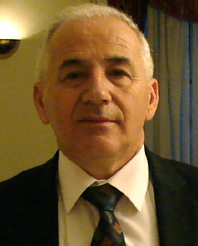The Albanian Parliament has "restored historical justice," Bulgarian Foreign Minister Ekaterina Zaharieva said, commenting on the newly adopted Law on the Protection of Minorities in the Republic of Albania. The document places the Bulgarian minority among the other eight ones in the country - Greek, Macedonian, Vlach, Roma, Egyptian, Montenegrin, Bosnian and Serbian. Under the law, in areas where the Bulgarian minority exceeds 20 percent, people will have the right to use their mother tongue in state institutions.
 "The draft law was under discussion and all parties were heard in parliamentary committees. Of course, the most serious discussions focused on the speeches of the representatives of the Bulgarian minority, as well as those of the Macedonian minority,” said Mr. Selim Hoxhaj, honorary consul of Bulgaria in Albania’s Vlora. The Macedonian Alliance for European Integration, Vasil Sterjovski, said that ‘only Macedonian minority lived in Prespa, Gora and Golo Brdo where it is claimed that there was Bulgarian minority. And the request for recognition of the Bulgarian community was part of a “Great Bulgaria’ project.”
"The draft law was under discussion and all parties were heard in parliamentary committees. Of course, the most serious discussions focused on the speeches of the representatives of the Bulgarian minority, as well as those of the Macedonian minority,” said Mr. Selim Hoxhaj, honorary consul of Bulgaria in Albania’s Vlora. The Macedonian Alliance for European Integration, Vasil Sterjovski, said that ‘only Macedonian minority lived in Prespa, Gora and Golo Brdo where it is claimed that there was Bulgarian minority. And the request for recognition of the Bulgarian community was part of a “Great Bulgaria’ project.”
“After being voted in Parliament, the law received a great deal of support - 102 votes in favor, 10 against and one abstained,” Mr. Hoxhaj went on to say. “And most importantly, the two largest parliamentary parties - the socialist and the democratic party reached almost complete consensus. "
This unanimous support is an interesting fact in itself, as in recent months the work of the National Assembly in Tirana has been extremely difficult because of the constant blocking of parliamentary sessions by the opposition, as sometimes there is complete lack of dialogue.
"There was fierce opposition, mostly on the part of the Macedonian organizations. They were also supported by some historians who opposed the recognition of the Bulgarian community, just like the Greek party did," Selim Hoxhaj said. “But the strongest counter-argument is the Council of Europe Convention itself and the Resolution of 15.02.2017, which defines what minority is. The most important thing is people’s self-determination. Additionally, account is taken of the historical circumstances and the language of the respective community.”
That is why the traditionally tolerant Albanian society has generally accepted positively the decision of the MPs. According to Bulgaria’s honorary consul in Albania, in addition to the long-term and active work of Bulgarian diplomacy, the Bulgarian associations - "Nasha Gora" in the Gora area, the "Bulgarian-Albanian Friendship Society" in Korçë and "Prosperity Golo Brdo" had a great contribution. "They firmly identified themselves as Bulgarians placing their signatures under a document in Parliament. There they showed an official document from 1935 during the reign of King Zog, showing 10 958 Bulgarians in it," Mr. Hoxhaj said and continued: "There can be no territorial claims because the Bulgarians in Albania today are scattered all over the country. People from Gora and Golo Brdo live in Tirana too. Yes, there are people who are not satisfied but most Albanians have a positive attitude as most ethnic groups contribute to diversification of traditions, customs, and music. This is how Albanian culture is enriched. "
English: Alexander Markov
The Bulgarian National Assembly is holding an extraordinary meeting at which MPs are hearing the senior management of the Central Election Commission and the Information Service company regarding their actions in the Constitutional Court case..
Student protesters in Serbia call for a general strike Student protests against the government and President Aleksandar Vucic continue in Serbia for the fourth month. In an appeal on Instagram, the protesters called on..
Life between Bulgaria and France... A little more than 80 years ago, in 1942, a boy was born in Sofia - the love child of a Bulgarian woman and a Frenchman. His parents met in France, but they decided to start a life in Bulgaria, so the couple settled in..

+359 2 9336 661
